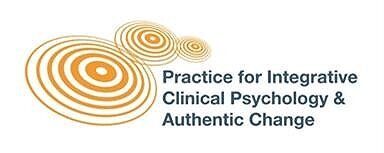SUPERVISION, COACHING & TRAINING
Our services of supervision, coaching and training include:
• Clinical case supervision (in individual, group and work team contexts)
• team supervision
• team conflict mediation
• team-building processes
• burn-out prevention
• communication training for small teams and groups
• disentanglement of relationships in family businesses
• clarification in decision-making processes
• and more...
The backbone of our approach is systemic, contextual, solution-focused and integrative.
It offers a highly flexible and progressive paradigm to expand and enrich the understanding of the traditional therapist - client/ expert - layman relationship in the case of clinical supervision as well as the inner workings and underpinnings of team and organisational structures and it's possible pit falls. Complex human relationships are understood to have intra-psychological, interpersonal and often trans-generational dimensions in which even the most capable professional will get entangled from time to time. It aims to interrupt and resolve these patterns of entanglement to facilitate and utilize sustainable win - win scenarios for both the clients/customer, clinicians/provider and/or team member benefit.
Classically, the application of Systemic Supervision lies in the medical, clinical, psycho-social, psycho-educational and psychological field but can be extended to almost every area where humans interact.
Systemic
We understand relationships between human beings as complex open learning systems which involves the consideration of reciprocity and circularity as well as the concept of potential self-regulation. It also means that we focus on relationships and the way they operate in social systems ie. between professionals and clients, in teams, between colleagues and/or hierarchies in organisations and in businesses. Relationships and the way we communicate in and through them are the fabric which provides the canvas on which our life plays out. Professionally and privately.
Contextual
points to the acknowledgement that processes have their own innate logic. Processes, once initiated, follow a natural progression (think for example of a growing plant), which is partly out of our control. By understanding how we can contribute to creating an environment that is nurturing and conducive to the processes underway, besides fostering transparent and congruent communication between the elements partaking in the process, we significantly change the way we can participate in and facilitate change.
Solution-focused
underlines that although we might not be able to change the problem of life, the way we approach it can indeed make a significant difference to the way we live it. Solutions do not necessarily mean the absence of further challenges. Furthermore they are therefore more connected to an inner attitude, a mind-set from which the next step becomes evident, while we still stay connected with our long-term goals.
Integrative
describes the employment of a broad range of techniques and methods within the context of systemic thinking for supervision. It is tailored to the clients specific needs, context and framework and includes elements of role-play, reflecting team, feedback, hypnotic modalities like NLP, behavioral elements, group dynamics and the insights provided by the application of Systemic and Structural Constellations.
SYSTEMIC SUPERVISION FOR CLINICIANS
Systemic Supervision is an approach to clinical supervision. You can apply it as an individual in a one-to-one setting as well as in a group or team of colleagues. It provides a protected and confidential context in which you have the opportunity to step back, reflect on work-related questions, receive supportive feedback and explore new ways of acting in specific situations. It also offers a platform from where we can relate to our colleagues/ team members/clients, solve possible conflicts and strengthen the cohesion of working team-bonds.
For further enquiries and questions please do not hesitate to contact us.

